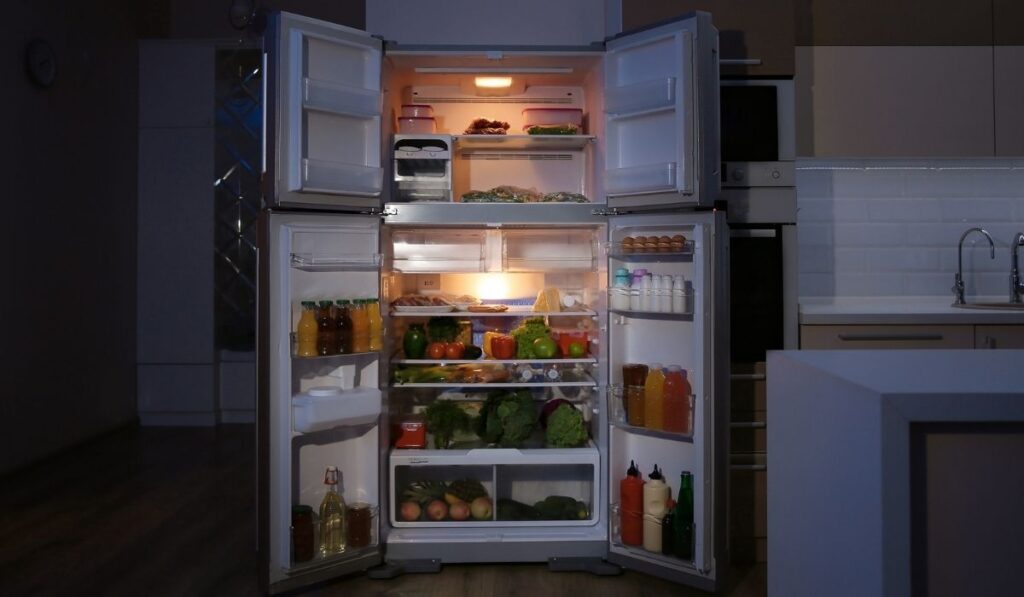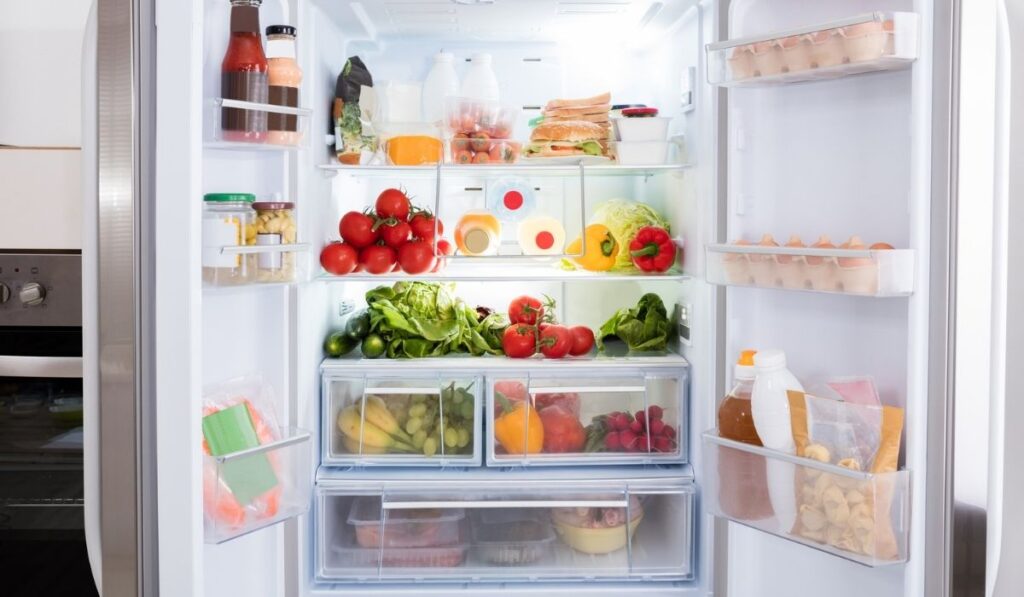Admit it: Your refrigerator is one of the most critical home appliances. It makes life so much easier! This is why it’s unfortunate that some people overstuff food and drinks into the compartments because they don’t know the fridge’s load capacity. This lack of knowledge is often the difference between your appliance working efficiently and breaking down.
Overloading a refrigerator or freezer happens when you store more food in your appliance than it can hold. And when a fridge or freezer is overloaded, it results in challenges such as spoiled food, appliance breakdown, and increased energy bills.
This guide will highlight all you need to know about overloading your refrigerator or freezer and what constitutes an overload, the effects, and the solution.
Is It Possible to Overload a Refrigerator or a Freezer?

Yes, it’s possible to overload your refrigerator or freezer. However, it’s not just about too much food in the fridge. It’s also about storing more than what is needed. This is why it’s not surprising that the primary cause of overloading a refrigerator is poor organization when storing food.
If you fill your refrigerator or freezer beyond the recommended point, its air vents will be blocked and therefore not able to circulate cool air as it is supposed to. This will then result in restricted airflow. Subsequently, the food will not be cooled as expected, causing it to spoil.
How Would You Overload a Refrigerator/Freezer?
A refrigerator’s manual usually details how much a fridge or freezer can carry. If you don’t follow the recommendation, you’ll overload your fridge and reduce its efficiency.
One simple way to know if you have overloaded a fridge is if you can’t see the back wall. Additionally, if you open the fridge door and haven’t put large items in front, the food on top of the shelves should be visible.
The same applies to freezers. For freezers with a single door, you need to ensure that nothing is blocking the doorway and at least three inches between frozen items and exterior walls.
An overloaded freezer often results in frost building up on interior walls and shelves because too much cold air escapes each time it’s opened. Keeping your freezer full helps prevent this, but don’t jam-pack it so tightly that air can’t circulate well.
What Happens if You Overload a Refrigerator/Freezer?
The main problem with overloading your fridge is that it works harder. This means the motor will run longer, thus increasing energy costs. And if you keep your freezer packed too full, the compressor can break down.
Other negative results of overloading your fridge or freezer include:
- Food spoiling: An overloaded refrigerator has less airflow, so your food will not be well-aerated and spoil faster.
- Higher energy consumption: Overloading will make the fridge work more, leading to higher energy costs.
- Needing to defrost more often: One con of overloading a refrigerator is that ice will usually collect on the side, forcing you to defrost it every few days or weeks.
Overloading also shortens the lifespan of a refrigerator or freezer. In extreme cases, your fridge could also stop working entirely.
What Can You Fix an Overloaded Refrigerator/ Freezer?

The good news is that, while overloading a freezer or refrigerator is a common problem, there are super simple techniques you can use to avoid the issues that come with it. This will then keep your food fresher and prolong the efficiency and lifespan of your appliance.
- Store food with labels indicating the date and the food type to help keep you from overshopping and subsequently overloading your refrigerator.
- Note the positions of the air vents to prevent blocking them when storing your food.
- Store new items at the back and old ones in front.
- Always keep track of your shopping and what you use to avoid storing foods unnecessarily in the fridge or freezer.
- Schedule regular fridge cleanings to know what foods you don’t need to add to your next shopping trip.
- Follow the manufacturer’s recommended load capacity for your appliance.
- Store your food without packaging to prevent storing small food amounts in large containers.
- Store juices, condiments, and foods high in water content at the bottom of the fridge because they’re more likely to drip onto other foods below when thawing, contaminating them with foodborne bacteria.
To Finish
Overloading your refrigerators and freezers often makes them inefficient, causing substantial energy bills.
However, following the above tips and the manufacturer’s recommendations will have eliminated the overloading problem. Knowing which foods should go to either the lower or upper chambers is essential when organizing foods in the refrigerator or freezer.
